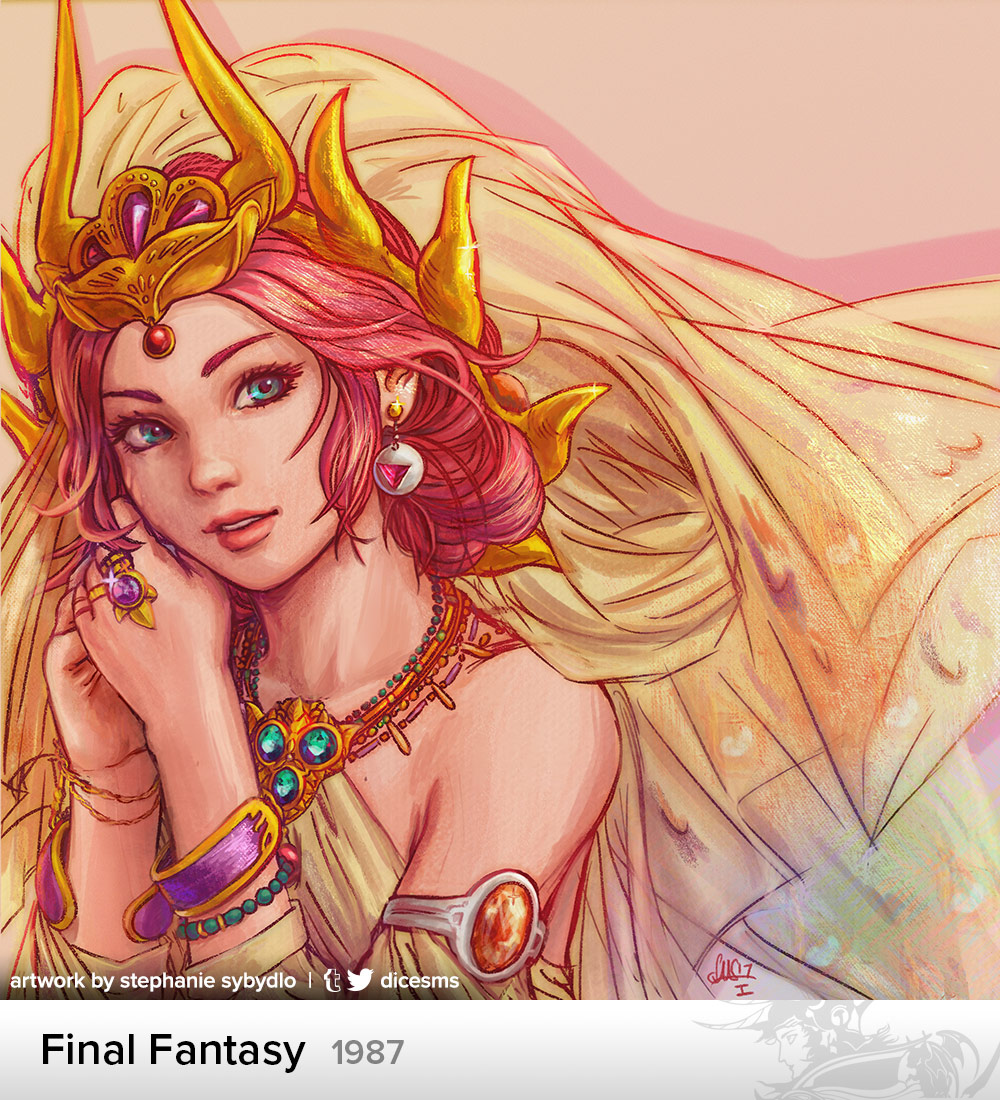
I wasn't terribly impressed with the original Final Fantasy the first time I played it. I had played through parts of Final Fantasy IV with a friend at a sleepover, but in 1994 I only had the regular NES. I was desperate to play more of these mysterious "RPGs" so I bought a copy of Final Fantasy I without totally knowing what I was getting into. I found a game with no Cecil, no Kain, no betrayals, no summoned monsters, and barely any airships (FFIV is overloaded with airships).
But it had character classes. I wasn't sure what to make of the game's class system when I first played it, but I quickly grew attached to BULL the fighter, DOG the thief, SUN the white mage, and MOON the black mage. I never finished the NES version of FFI (I think I got stuck at the Sunken Shrine?), but I created my own fiction for those four generics as far as I was able to push myself. BULL thought he was the team's leader and always worked hard to protect his friends, but really DOG was the smart one who planned the group's actions. SUN and MOON were brothers and argued constantly (I assumed all four heroes were boys). MOON died so often that the other three heroes (and nine-year-old Sollosi) were pretty mad about it. Final Fantasy I's story lacked the character-driven nature of Final Fantasy IV's, so I made up my own character conflicts.
The other great feeling that comes with the Final Fantasy class system is that of transformation. When you meet Bahamut partway through FFI and your characters class change, it's a tremendous feeling of accomplishment and reward. Similarly, when Cecil transforms from a Dark Knight to a Paladin in Final Fantasy IV, the very nature of the game changes. Final Fantasy games that allow frequent class changes like Final Fantasy V and Final Fantasy XIV grant a feeling of efficacy, that any of your characters can be anything. My memory playing Final Fantasy I was my discovery of character classes, and that's informed my gaming habits ever since.
